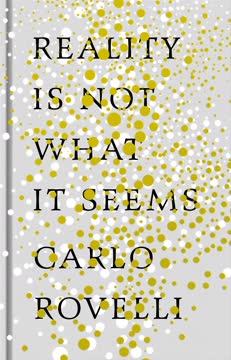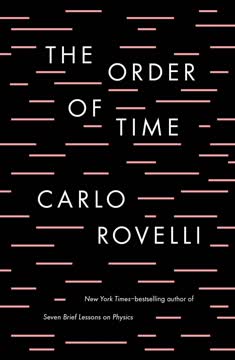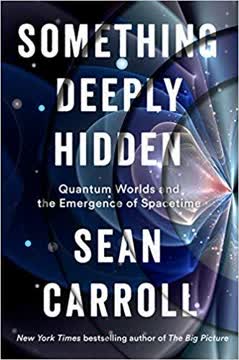Key Takeaways
1. Consciousness: The Fundamental Reality We Can't Ignore
Consciousness is fundamental to what we are as human beings.
Defining consciousness. Consciousness encompasses our subjective inner experiences, including sensations, emotions, and thoughts. It is the essence of our personal identity and the source of value in our existence. Unlike other aspects of reality, consciousness is directly known to us through immediate experience.
Importance of consciousness. Consciousness plays a crucial role in:
- Personal identity and survival
- Meaningful experiences and quality of life
- Our only certain knowledge of reality
While we can doubt the existence of the external world, we cannot doubt our own consciousness. This makes consciousness a fundamental starting point for understanding reality.
2. The Limits of Physical Science in Explaining Consciousness
Physical science is a wonderful thing. And it was only possible because Galileo taught us how to think of matter mathematically. However, Galileo's philosophy of nature has also bequeathed us deep difficulties.
Galileo's legacy. Galileo's approach to science, focusing on quantitative aspects of reality, has been incredibly successful. However, this success came at a cost:
- Exclusion of qualitative aspects of reality, including consciousness
- Creation of a gap between the objective world of science and the subjective world of experience
The explanatory gap. Physical science faces fundamental limitations in explaining consciousness:
- It deals with objective, quantitative properties
- Consciousness is inherently subjective and qualitative
- There's no clear way to bridge this gap using current scientific methods
This limitation suggests the need for a new approach to understanding consciousness that goes beyond the current paradigm of physical science.
3. Dualism vs. Materialism: Shortcomings of Traditional Approaches
If materialism is true, then feelings are identical with brain states.
Dualism's problems:
- Difficulty explaining mind-body interaction
- Lack of empirical evidence for non-physical minds
- Conflicts with scientific understanding of the brain
Materialism's challenges:
- Inability to account for subjective qualities of experience
- Reduction of consciousness to brain states doesn't capture its essence
- Logical incoherence in explaining subjective experience through objective facts
Both approaches fail to provide a satisfactory explanation of consciousness, suggesting the need for an alternative perspective that can bridge the gap between the physical and the mental.
4. Panpsychism: A Third Way to Understand Consciousness
Panpsychism is the view that consciousness is a fundamental and ubiquitous feature of physical reality.
Defining panpsychism. Panpsychism proposes that:
- Consciousness is a basic aspect of reality, present in all matter
- Complex consciousness (like human experience) emerges from simpler forms
- It's not that everything is conscious, but that everything is composed of conscious entities
Advantages of panpsychism:
- Avoids the problems of both dualism and materialism
- Provides a unified view of reality that includes consciousness
- Consistent with scientific understanding while accounting for subjective experience
Panpsychism offers a middle ground between materialist reduction and dualist separation, potentially resolving the hard problem of consciousness.
5. The Russell-Eddington Insight: Consciousness as the Intrinsic Nature of Matter
Physics tells us nothing about the intrinsic nature of matter.
The limitation of physics. Physical science describes the behavior of matter but not its intrinsic nature. This creates a gap in our understanding of reality.
Consciousness as the missing piece. Russell and Eddington proposed that:
- Consciousness could be the intrinsic nature of matter
- This would explain both the behavior of matter (described by physics) and our subjective experience
- It provides a way to integrate consciousness into our scientific worldview
This approach turns the problem of consciousness on its head, making it the foundation of our understanding of reality rather than an unexplained anomaly.
6. The Combination Problem: Challenges for Panpsychism
How do you get from little conscious things, like fundamental particles, to big conscious things, like human brains?
The core challenge. The combination problem asks how simple forms of consciousness at the micro-level combine to form complex consciousness at the macro-level.
Potential approaches:
- Reductionist panpsychism: Tries to explain complex consciousness in terms of simpler forms
- Emergentist panpsychism: Proposes new fundamental principles governing the emergence of complex consciousness
While the combination problem is a significant challenge for panpsychism, it is arguably more tractable than the problems faced by dualism and materialism.
7. Quantum Entanglement and Mental Combination
Particles really can act as one even when light-years apart.
Quantum entanglement as a model. Quantum entanglement demonstrates that:
- Physical systems can form unified wholes that are more than the sum of their parts
- This could provide a model for understanding how conscious entities combine
Implications for panpsychism:
- Suggests a way to understand mental combination beyond simple aggregation
- Offers a scientific parallel to the idea of unified consciousness emerging from simpler components
While not a complete solution, quantum entanglement provides a promising avenue for addressing the combination problem in panpsychism.
8. Panpsychism's Implications for Our Relationship with Nature
Imagine if children were raised to experience trees and plants in the same way, to see the movement of a plant toward the light as expressing its own desire and conscious drive for life, to accept the tree as an individual locus of sentience.
A new relationship with nature. Panpsychism suggests:
- All of nature has some form of consciousness
- This could foster greater respect and care for the environment
- It aligns with emerging scientific understanding of plant intelligence and communication
Potential impacts:
- Transforming our approach to environmental conservation
- Rethinking our ethical obligations to other forms of life
- Developing a more harmonious and sustainable relationship with the natural world
Panpsychism offers a philosophical foundation for a deeper, more empathetic connection with nature, potentially addressing environmental challenges.
9. Free Will and Panpsychism: A New Perspective on Human Agency
If humans are free, then so too is the matter of which we are made.
Rethinking free will. Panpsychism offers a unique perspective on free will:
- It allows for genuine choice without resorting to dualism
- Suggests that freedom might be a fundamental aspect of reality, not just a human trait
- Provides a middle ground between determinism and randomness
Implications:
- Challenges to both hard determinism and libertarian free will
- A new understanding of agency that extends beyond human consciousness
- Potential reconciliation of free will with scientific understanding of the world
This view of free will aligns with our intuitive sense of agency while avoiding the pitfalls of both strict determinism and metaphysical dualism.
10. Mystical Experiences and Formless Consciousness: A Naturalistic Interpretation
Rather than taking formless consciousness to be something beyond the physical universe, the panpsychist could maintain that formless consciousness is the intrinsic nature of the physical universe itself.
Naturalizing spiritual experiences. Panpsychism offers a way to understand mystical experiences without resorting to supernatural explanations:
- Formless consciousness could be the fundamental nature of reality
- Mystical experiences might be direct apprehensions of this underlying reality
- This provides a bridge between spiritual insights and scientific understanding
Implications:
- A naturalistic approach to spirituality
- Potential reconciliation of scientific and spiritual worldviews
- New avenues for exploring altered states of consciousness
By providing a naturalistic interpretation of mystical experiences, panpsychism offers a way to take these experiences seriously without abandoning scientific principles.
Last updated:
FAQ
What is "Galileo's Error: Foundations for a New Science of Consciousness" by Philip Goff about?
- Central Thesis: The book argues that the problem of consciousness stems from Galileo’s decision to exclude subjective experience from the domain of science, and proposes a new scientific paradigm that reincorporates consciousness as a fundamental aspect of reality.
- Panpsychism Advocacy: Goff defends panpsychism—the view that consciousness is a fundamental and ubiquitous feature of the physical world—as the most promising solution to the hard problem of consciousness.
- Critique of Materialism and Dualism: The book critically examines both materialist and dualist approaches to consciousness, highlighting their limitations and contradictions.
- Historical and Philosophical Context: Goff traces the philosophical and scientific history leading to the current impasse in consciousness studies, focusing on the legacy of Galileo, Descartes, and later thinkers like Russell and Eddington.
Why should I read "Galileo's Error" by Philip Goff?
- Accessible Introduction: The book offers a clear, engaging, and accessible introduction to contemporary debates about consciousness, suitable for both newcomers and those familiar with the topic.
- Challenging Assumptions: Goff challenges widely held assumptions about science, reality, and the mind, encouraging readers to rethink the foundations of their worldview.
- Interdisciplinary Appeal: The book bridges philosophy, neuroscience, and physics, making it relevant for readers interested in any of these fields.
- Timely and Provocative: As interest in consciousness and panpsychism grows, Goff’s arguments are at the forefront of a philosophical movement that could reshape our understanding of mind and matter.
What are the key takeaways from "Galileo's Error" by Philip Goff?
- Galileo’s Philosophical Move: Galileo’s separation of quantitative science from qualitative experience created the modern problem of consciousness.
- Limits of Physical Science: Physical science, as currently conceived, cannot fully explain subjective experience because it was designed to exclude it.
- Panpsychism as a Solution: Panpsychism offers a way to integrate consciousness into the scientific worldview by positing that all matter has some form of experience.
- Need for a New Science: Goff calls for a post-Galilean science that takes consciousness as seriously as physical data, requiring collaboration between philosophers and scientists.
How does Philip Goff define panpsychism in "Galileo's Error"?
- Fundamental and Ubiquitous: Panpsychism is the view that consciousness is a basic and ubiquitous feature of the physical world, present even at the level of fundamental particles.
- Not Anthropomorphic: Goff clarifies that panpsychism does not mean that inanimate objects like socks have rich conscious lives; rather, the simplest forms of consciousness are unimaginably basic.
- Continuum of Consciousness: There is a spectrum from complex human consciousness to simpler forms in animals, plants, and possibly down to particles, with no sharp cutoff.
- Alternative to Dualism and Materialism: Panpsychism avoids the interaction problems of dualism and the explanatory gaps of materialism by positing consciousness as intrinsic to matter.
What is "Galileo's error" according to Philip Goff?
- Exclusion of Qualities: Galileo’s error was to exclude sensory qualities (color, taste, sound, etc.) from the scientific description of matter, relegating them to the mind or soul.
- Quantitative Focus: By focusing science solely on what can be measured mathematically, Galileo set the stage for a science that cannot account for subjective experience.
- Partial Description of Reality: Goff argues that Galileo intended physical science to be a partial, not complete, account of reality, but this limitation has been forgotten.
- Source of the Consciousness Problem: The modern “hard problem” of consciousness arises directly from this foundational philosophical move.
How does "Galileo's Error" critique materialism and dualism as theories of consciousness?
- Materialism’s Contradiction: Goff argues that materialism is incoherent because it tries to explain subjective, qualitative experience in purely objective, quantitative terms, which is logically impossible.
- Dualism’s Interaction Problem: Dualism posits nonphysical minds but struggles to explain how these interact with the physical brain, and neuroscience finds no evidence of such interaction.
- Illusionism’s Shortcomings: Some materialists claim consciousness is an illusion, but Goff contends this is self-defeating, as the very evidence for illusionism is itself conscious experience.
- Panpsychism as a Middle Way: Goff presents panpsychism as a more parsimonious and coherent alternative that avoids the pitfalls of both materialism and dualism.
What is the "hard problem of consciousness" as discussed in "Galileo's Error"?
- Definition: Coined by David Chalmers, the hard problem is the challenge of explaining why and how physical processes in the brain give rise to subjective experience.
- Easy vs. Hard Problems: “Easy” problems involve explaining cognitive functions and behaviors, while the “hard” problem concerns the existence and nature of subjective experience itself.
- Materialist Explanations Insufficient: Goff argues that no amount of neuroscientific data can bridge the explanatory gap between brain processes and conscious experience.
- Panpsychism’s Promise: By positing consciousness as fundamental, panpsychism sidesteps the hard problem’s intractability.
How does "Galileo's Error" use thought experiments like "Black and White Mary" and "philosophical zombies"?
- Black and White Mary: This thought experiment shows that complete physical knowledge does not entail knowledge of subjective experience, highlighting the limits of materialist explanations.
- Philosophical Zombies: The logical possibility of beings physically identical to us but lacking consciousness demonstrates that consciousness is not reducible to physical processes.
- Purpose of Thought Experiments: Goff uses these scenarios to reveal contradictions in materialist theories and to argue for the irreducibility of consciousness.
- Support for Panpsychism: These thought experiments bolster the case for panpsychism by showing that consciousness cannot be explained away or ignored.
What is the Russell-Eddington approach to consciousness, as presented in "Galileo's Error"?
- Intrinsic Nature of Matter: Bertrand Russell and Arthur Eddington argued that physics describes only the behavior of matter, not its intrinsic nature.
- Consciousness as Intrinsic Nature: Goff builds on their view, suggesting that consciousness is the intrinsic nature of physical reality, “breathing fire into the equations.”
- Panpsychism’s Philosophical Roots: This approach provides a philosophical foundation for panpsychism, uniting mind and matter without dualism.
- Simplicity and Elegance: The Russell-Eddington view is presented as the simplest theory consistent with what we know about matter and consciousness.
What is the "combination problem" for panpsychism, and how does "Galileo's Error" address it?
- Definition: The combination problem asks how simple forms of consciousness (e.g., in particles) combine to form complex consciousness (e.g., in brains).
- Comparison to Materialism’s Gap: Goff argues that while the combination problem is challenging, it is more tractable than the materialist’s explanatory gap.
- Research Directions: The book discusses reductionist and emergentist approaches, including insights from split-brain research and quantum entanglement.
- Ongoing Inquiry: Goff acknowledges that the combination problem is unsolved but sees it as a promising area for future interdisciplinary research.
How does "Galileo's Error" propose a "post-Galilean" science of consciousness?
- Expanding Science’s Scope: Goff calls for a science that takes both quantitative (physical) and qualitative (conscious) data as fundamental.
- Manifesto for Change: The book outlines a “Post-Galilean Manifesto” advocating realism about consciousness, empiricism, anti-dualism, and a panpsychist methodology.
- Interdisciplinary Collaboration: Progress requires philosophers and scientists to work together, moving beyond the limitations of current physical science.
- Revolution in Understanding: Goff envisions a paradigm shift akin to the scientific revolution, integrating consciousness into the heart of scientific inquiry.
What are the broader implications of panpsychism for meaning, ethics, and our relationship with nature, according to "Galileo's Error"?
- Re-enchanting the Universe: Panpsychism offers a way to see the universe as meaningful and interconnected, countering the alienation of a purely mechanistic worldview.
- Ethical Considerations: If consciousness is widespread, our moral obligations may extend to nonhuman animals, plants, and even the environment.
- Climate Crisis and Nature: Goff suggests that a panpsychist worldview could foster greater respect for nature and motivate action on issues like climate change.
- Spirituality and Science: The book explores how panpsychism can naturalize spiritual experiences and provide a foundation for objective values and free will.
What are the best quotes from "Galileo's Error" by Philip Goff, and what do they mean?
- “Galileo created the problem of consciousness.” – This encapsulates Goff’s thesis that the exclusion of subjective experience from science is the root of today’s consciousness conundrum.
- “Plug the hole with consciousness.” – Refers to the Russell-Eddington solution: filling the explanatory gap in physics with consciousness as the intrinsic nature of matter.
- “The reality of consciousness is a datum in its own right.” – Emphasizes that consciousness is a fundamental fact, not to be explained away or ignored.
- “We must move to a post-Galilean paradigm, in which the data of consciousness and the data of physics are both taken seriously.” – Summarizes Goff’s call for a
Review Summary
Galileo's Error receives mixed reviews, with praise for its accessible introduction to panpsychism and consciousness theories. Readers appreciate Goff's clear explanations of complex philosophical concepts and thought experiments. Some criticize the book's later chapters as weaker or too speculative. While many find the arguments for panpsychism intriguing, others remain unconvinced. The book is commended for challenging materialist views and encouraging readers to reconsider their assumptions about consciousness and reality.
Similar Books






Download PDF
Download EPUB
.epub digital book format is ideal for reading ebooks on phones, tablets, and e-readers.





